L.A. Mayor Focuses on the Need for Housing Solutions During UCLA Luskin Summit Karen Bass visits campus to join discussions on the value of research about issues like homelessness, climate resilience, governance and equity in transportation
By Les Dunseith
On April 17, Los Angeles Mayor Karen Bass was the featured speaker as scholars, civic leaders and the philanthropic community came together to discuss policy issues during the sixth annual UCLA Luskin Summit.
What was on her mind? Housing.
Bass, who declared homelessness a state of emergency immediately upon taking office as mayor in December 2022, told the more than 300 people in attendance at the UCLA Luskin Conference Center that her office is now turning more attention to longer-term solutions after initially emphasizing urgency in getting unhoused people off the streets.
“It is not reasonable for somebody [needing shelter] to be able to stay around while we get housing built,” she said of the challenge to provide shelter for people in need amid an ongoing affordable housing crisis.
The mayor’s remarks were delivered during a discussion with Jacqueline Waggoner MA UP ’96, the current chair of the Luskin School’s Board of Advisors. Waggoner, who is the president of the Solutions Division for Enterprise Community Partners, said she was heartened by the mayor’s intense focus on homelessness, given the magnitude of the problem in Los Angeles.
Bass, a former congresswoman who now chairs the Homelessness Task Force for the U.S. Conference of Mayors, said that meeting with mayors around the country presents an opportunity to learn from others, and for other cities in the United States to benefit from what is being done in Southern California. She had announced a new housing initiative based on a program in Atlanta two days before speaking at the Luskin Summit.
“I feel good in terms of what we can do and how we should move forward,” said Bass, who then emphasized, “the biggest question is scale.”
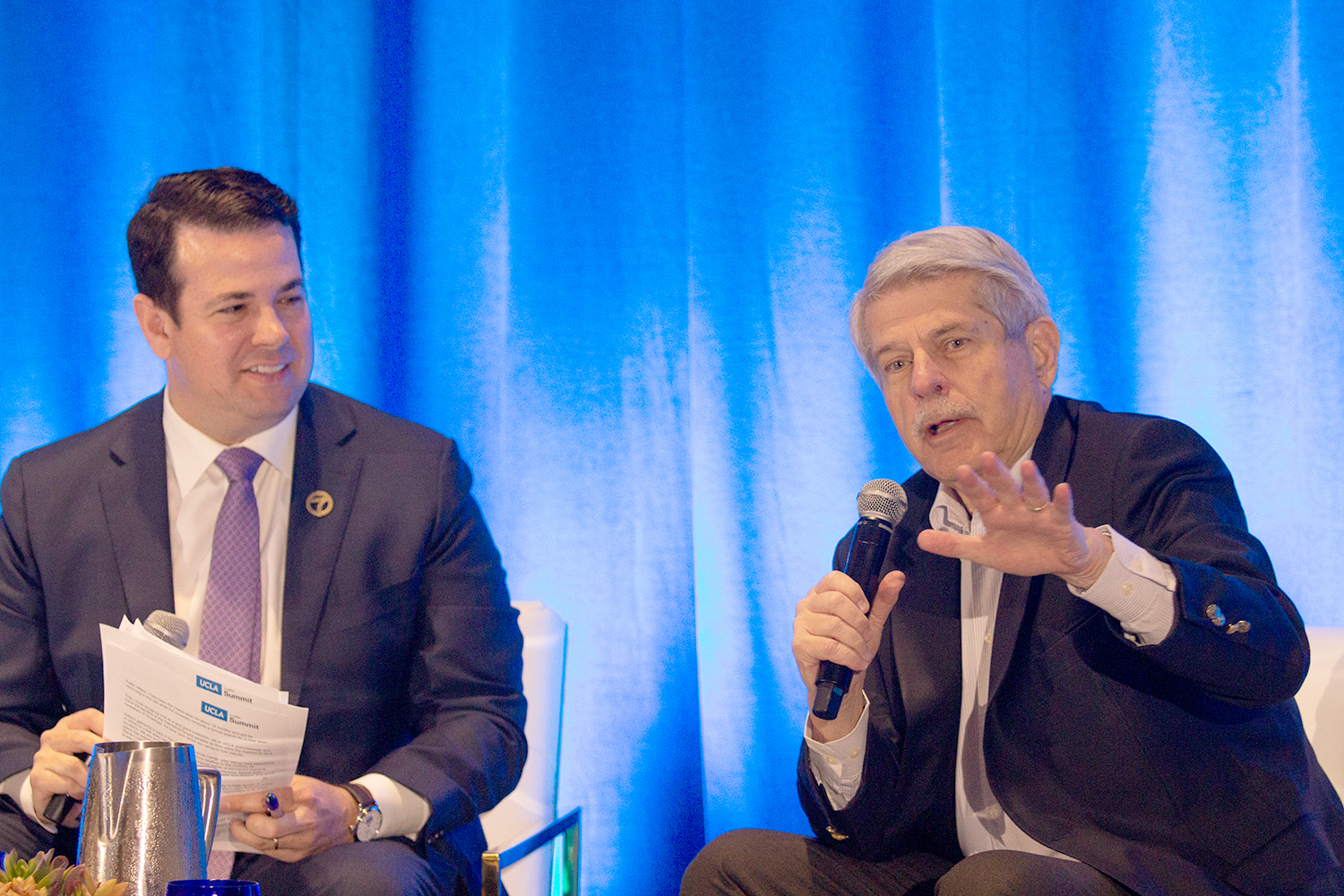
During an on-stage interview by ABC7’s Josh Haskell, left, the results of the ninth Quality of Life Index were unveiled by UCLA’s Zev Yaroslavsky. Photo by Stan Paul
Concerns over housing affordability was also a key takeaway from the ninth annual Quality of Life Index, which was publicly unveiled in the opening session of the 2024 Luskin Summit. The project at UCLA Luskin is directed by former Los Angeles public official Zev Yaroslavsky, now an adjunct faculty member at the UCLA Luskin School of Public Affairs.
Concerns over the high cost of living pushed the satisfaction of Los Angeles County residents back to its lowest-ever level, according to the annual survey, which received coverage as breaking news by media outlets that included the Los Angeles Times, area radio stations and the local affiliates of all four major U.S. broadcast TV networks.
More than half of respondents, or 59%, cited housing as the most important factor in their rating. During a Q&A moderated by reporter Josh Haskell of ABC7 in Los Angeles, Yaroslavsky pointed out that renters are feeling especially pessimistic about their futures.
“In our survey, we found that 75% of renters do not think they will ever be able to afford to buy a home in a place they’d like to live in Los Angeles County. Think about that — more and more people in our region see the American dream of homeownership slipping away,” Yaroslavsky said.
Yaroslavsky’s remarks were followed by six breakout sessions that examined timely policy issues from the perspective of scholarly research originating at the Luskin School and its affiliated research centers.
Summit attendees heard about studies and policy proposals in climate resilience, governance and equity in transportation. Panels made up of UCLA Luskin scholars and experts from the public, private and nonprofit sectors took on pressing issues affecting Los Angeles and beyond:
- What strategies can governments adopt now to help communities withstand rising temperatures?
- How is the Southland voter pool changing in this election year, and how can Los Angeles better provide representation for its 3.8 million people
- How are government agencies and nonprofits meeting the transportation needs of the region’s most disadvantaged people?
Much of the conversation was guided by research conducted by the UCLA Luskin Center for Innovation, the Institute of Transportation Studies, the Lewis Center for Regional Policy Studies and the Latino Policy and Politics Institute.
The session with the mayor was the final session of this year’s Luskin Summit. For about an hour, Bass answered questions and engaged in conversation with Waggoner, a native Angeleno with a longtime connection to the Los Angeles Homeless Services Authority (LAHSA).
Since Bass took office, Waggoner said she has noticed visible change in the homeless population. In the past, she would see people leave the streets, only to return soon after.
“I haven’t seen those same people in a year, and what I would say to you is that you are on the path to permanent solutions,” Waggoner said to Bass.
“But I’m never satisfied,” replied Bass, a former social worker. She understands that people experiencing homelessness need not just roofs over their heads, but social services.
“I come at it with a bias because my background is in health care, and I just think we need to do much, much more,” Bass said.
She noted that mental health is something that people often talk about in connection to the unhoused population, but treatment for chronic diseases such as diabetes, heart disease, high blood pressure and cancer are also important and deserve attention.
“I feel that health needs to be at the center,” Bass said.
Waggoner said that with homelessness spreading “in every neighborhood, people want to do something about it.”
Noting UCLA Luskin’s public-private partnerships with organizations like Hilton Foundation, a Summit sponsor, Waggoner asked Bass about the role of businesses and other groups in helping to get people into permanent housing.
“We are a state of unbelievable wealth. We have many, many, many billionaires that live in the city, tons of multi-millionaires who do phenomenal charitable work,” Bass responded. “I feel good that we’ve been able to align the public sector. But now we need the private sector, we need private money … to expedite the building” of more affordable housing.
Relying on public money can be a slow process because of regulations, construction approvals and the need to juggle multiple funding streams.
“A private developer comes in and can get the development going,” Bass explained. “So, we are hoping that we can do a capital campaign. Everybody knows capital campaigns — buildings get built.”
During her discussion with Waggoner and the 25-minute audience Q&A that followed, Bass also talked about the city’s LA4LA plan to partner with private donors and business to purchase existing properties, including major hotels, to develop its system of long-term interim and permanent housing.
Noting the scale of the problem and an audience consisting of scholars, philanthropic leaders and community organizations, Waggoner pointed out that many people will need to play a part for Bass to realize her vision of a housing solution in Los Angeles.
“Everyone needs to have skin in this game,” Bass said.
The annual event is organized by the UCLA Luskin School of Public Affairs under the guidance of its Board of Advisors, and naming benefactors Meyer and Renee Luskin were among those in attendance. The event was supported by gifts from 12 local charitable organizations and businesses, many of which have been sponsors since the first Luskin Summit in 2019. This year’s theme was “Transformative Action.”
Mary Braswell and Stan Paul also contributed to this story.
—
See additional photos on Flickr:
Watch a recording of the mayor’s discussion with Waggoner and the audience Q&A on our Vimeo channel:
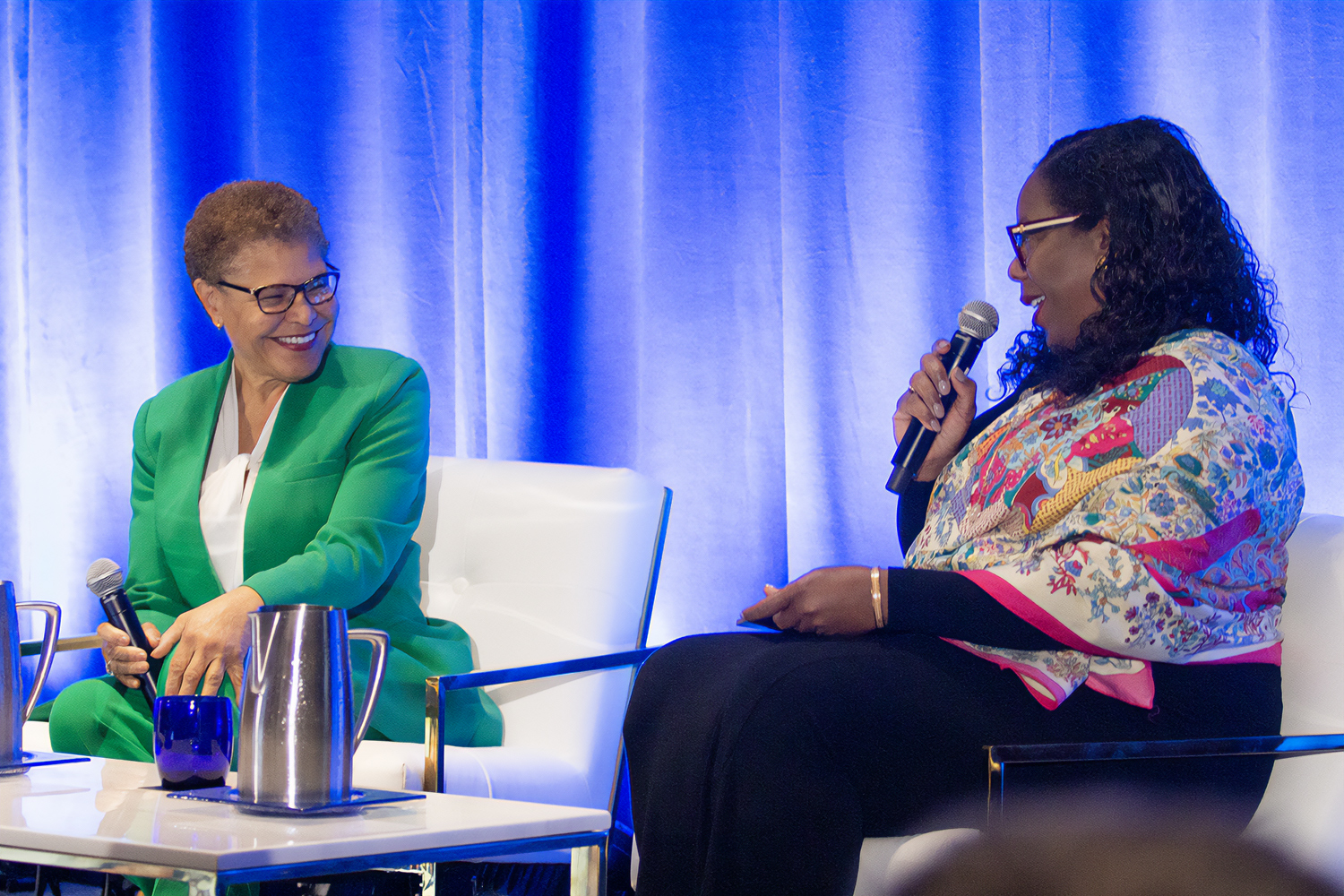
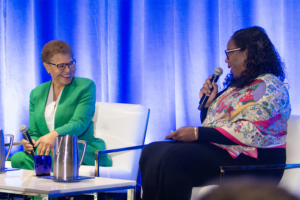
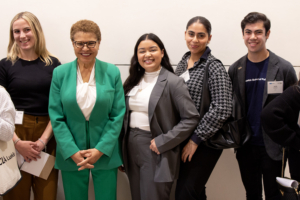
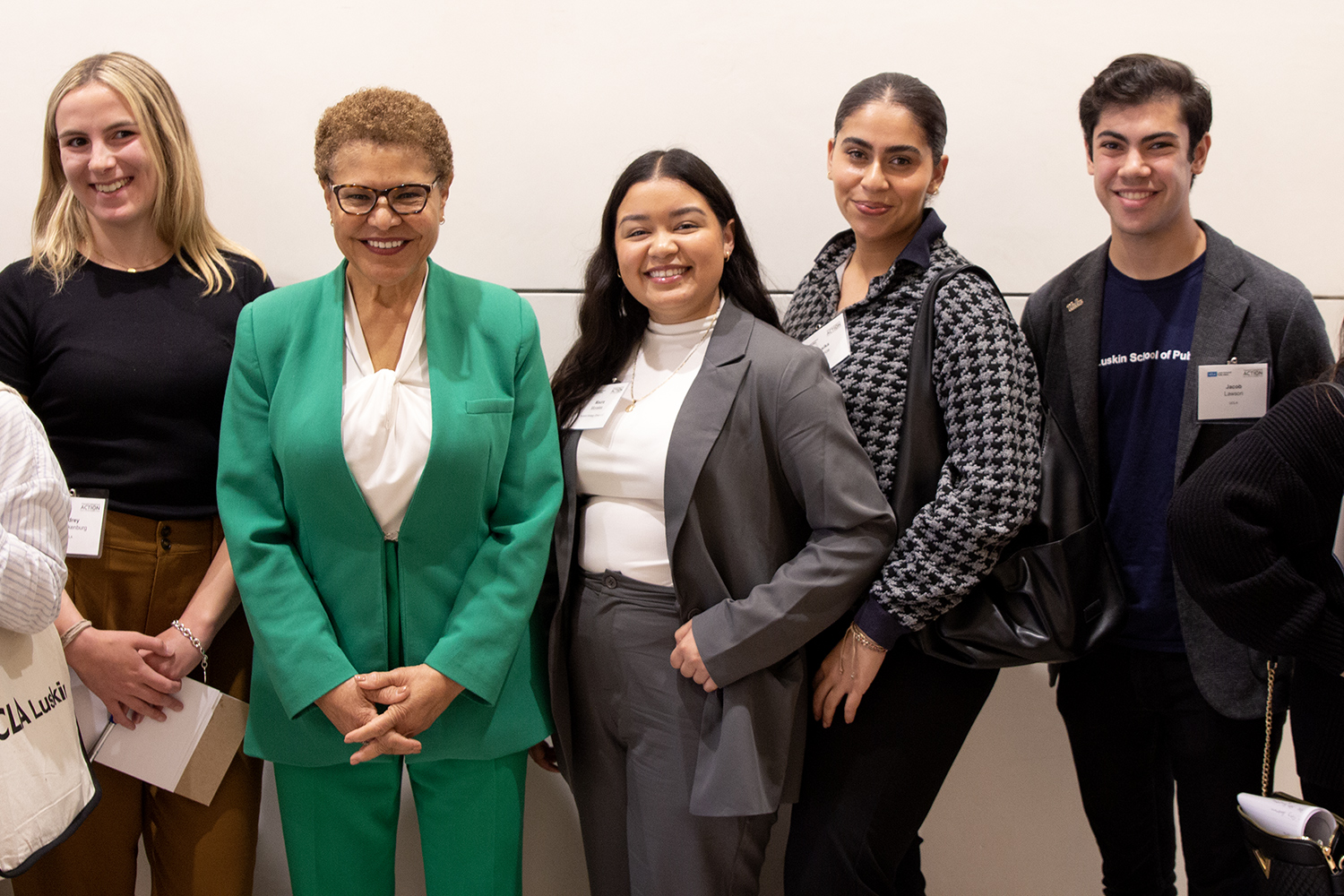
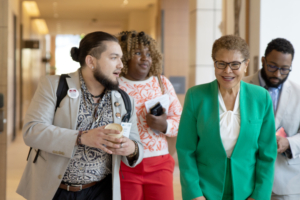
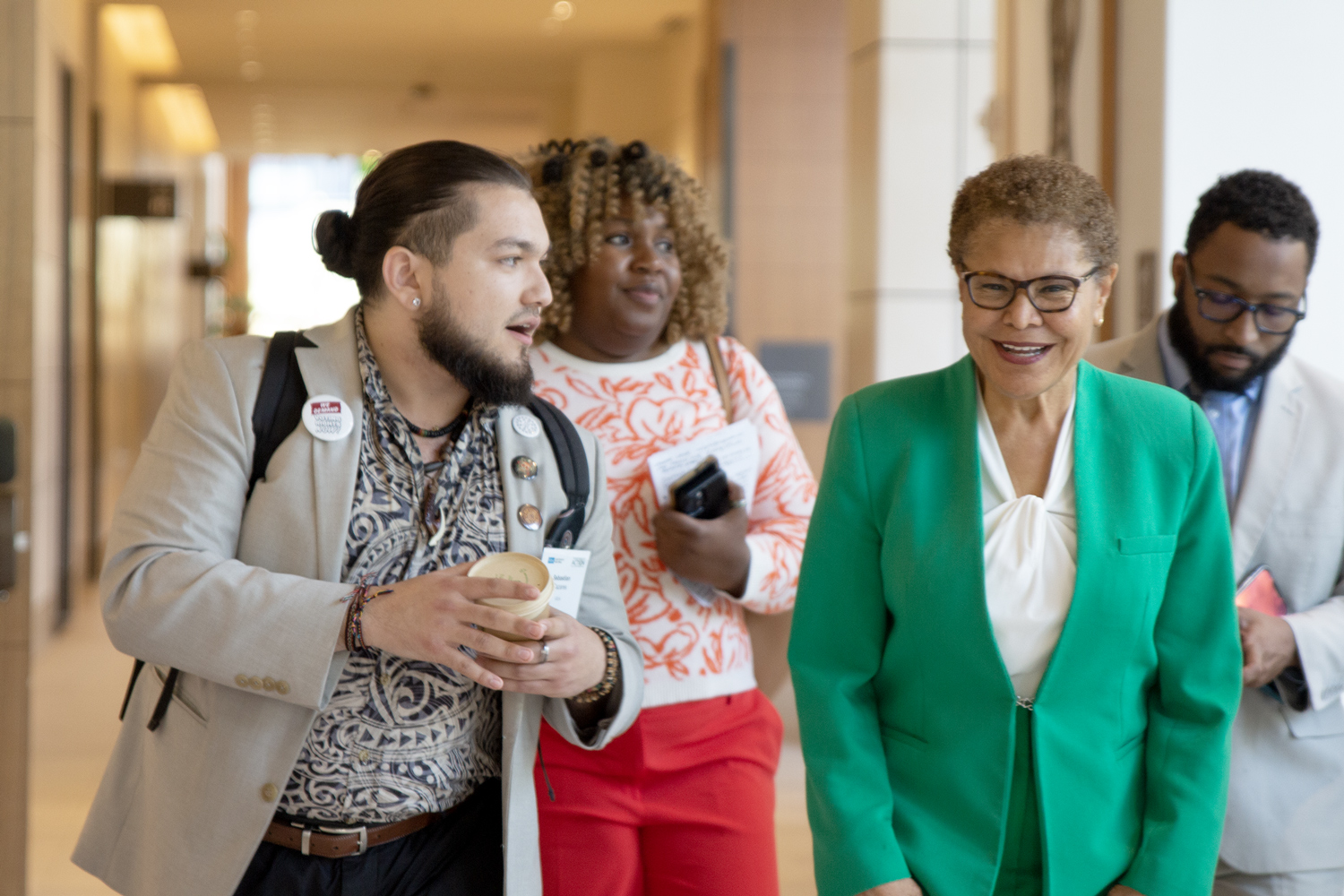
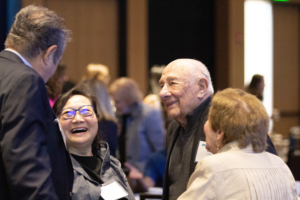
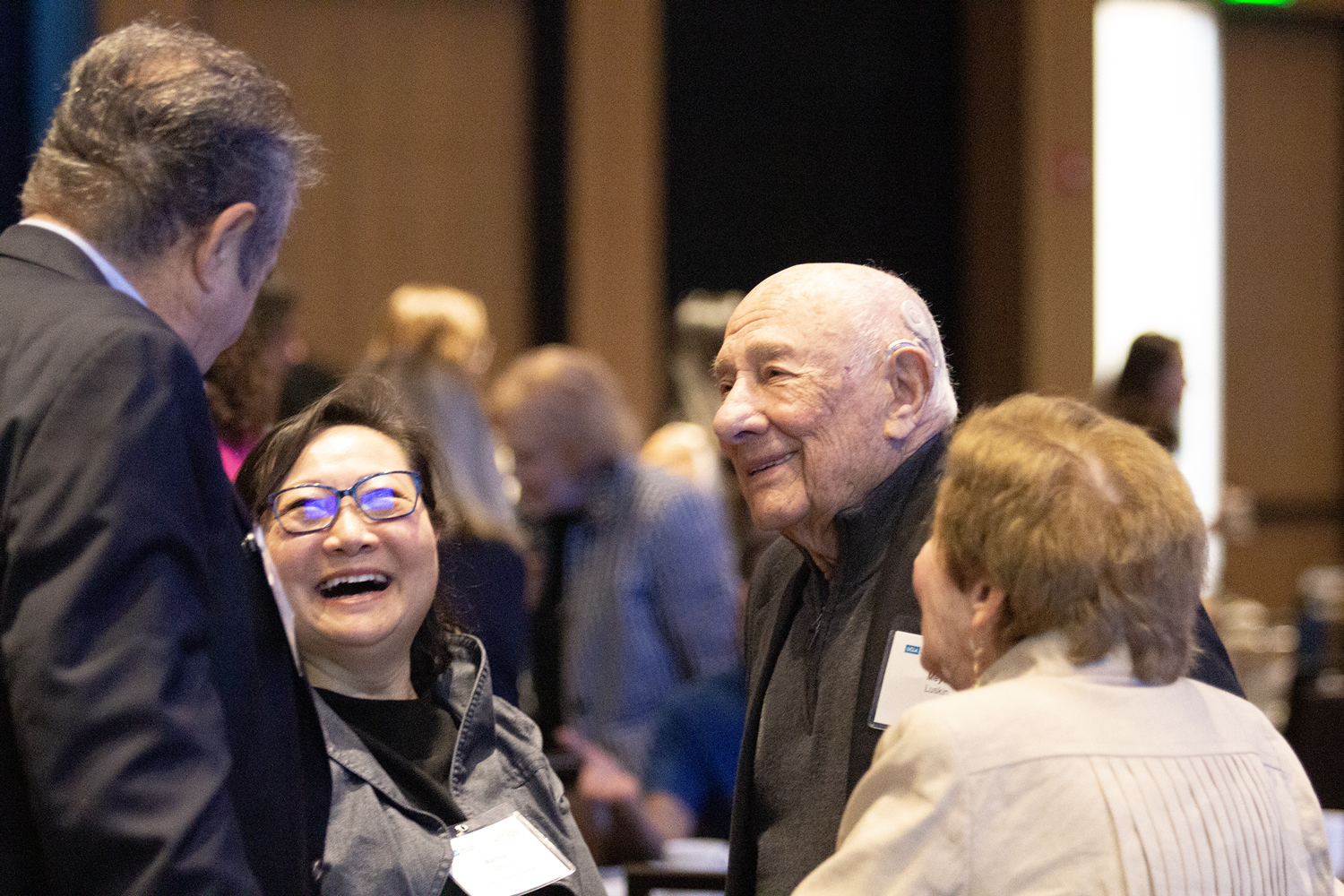
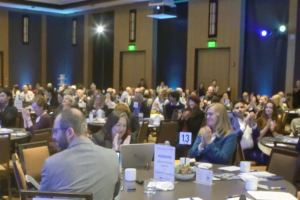
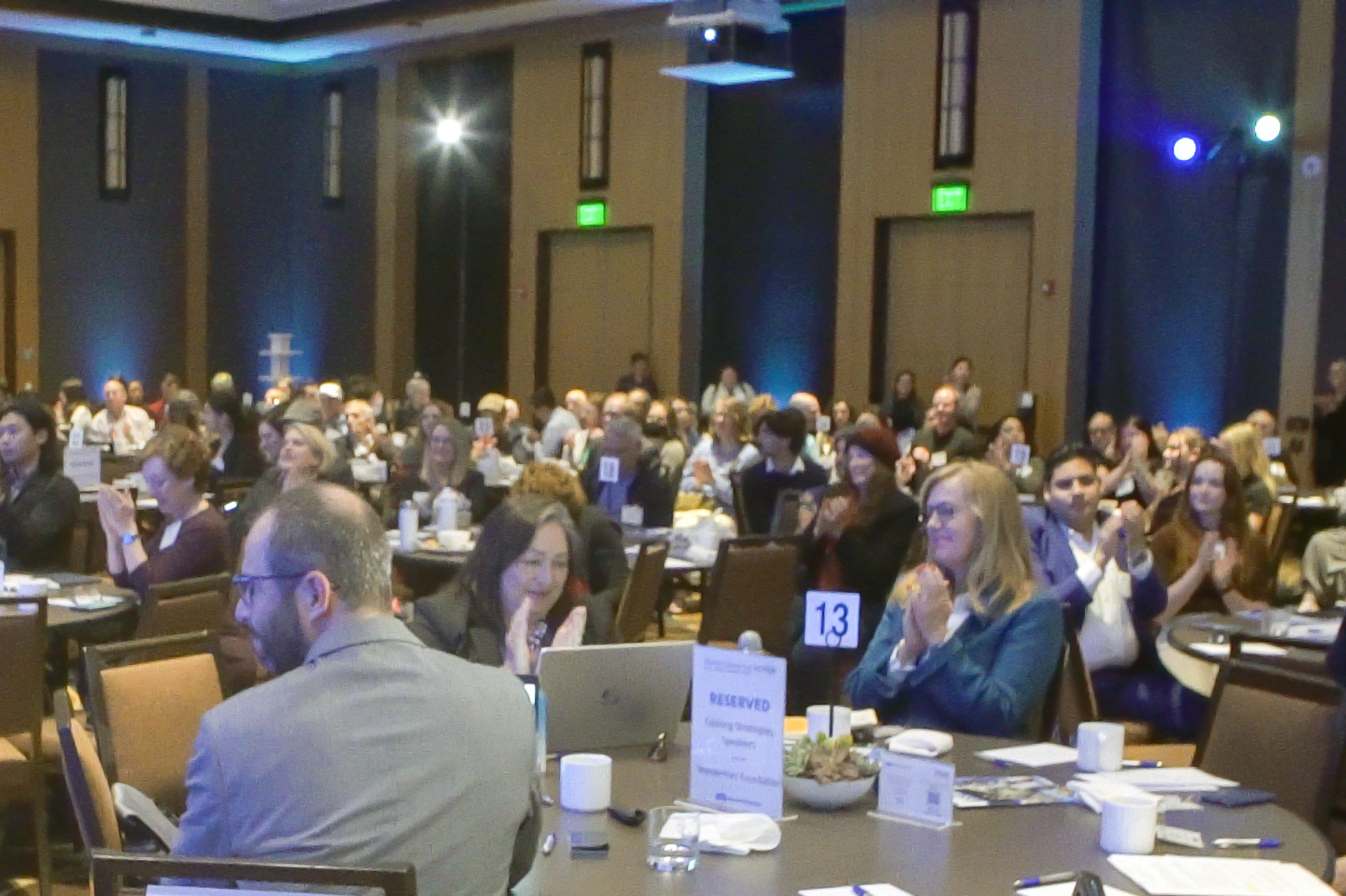
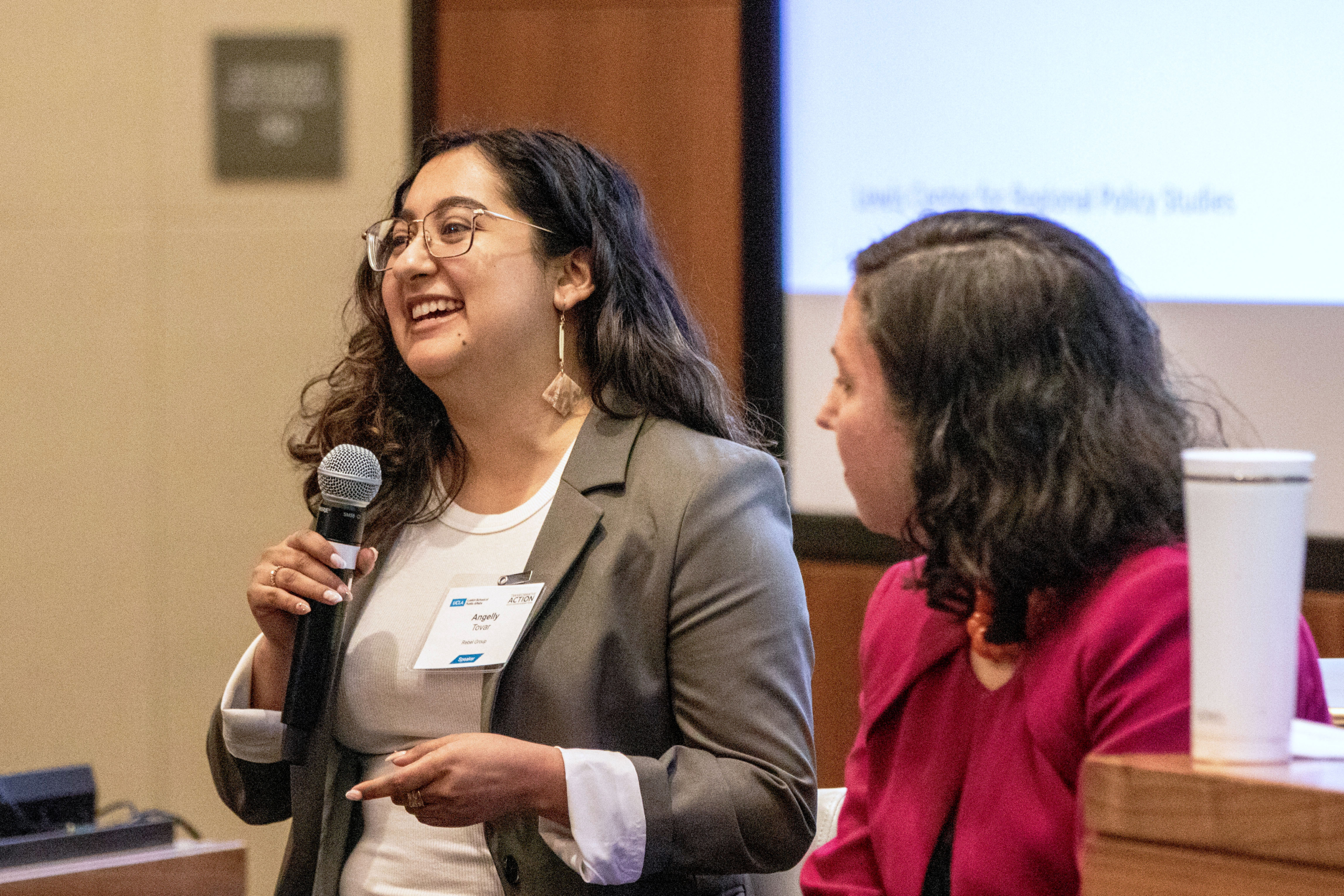
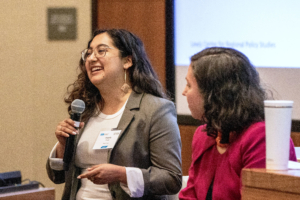
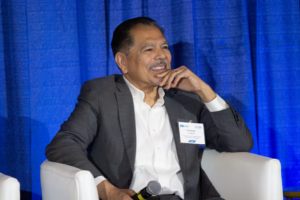
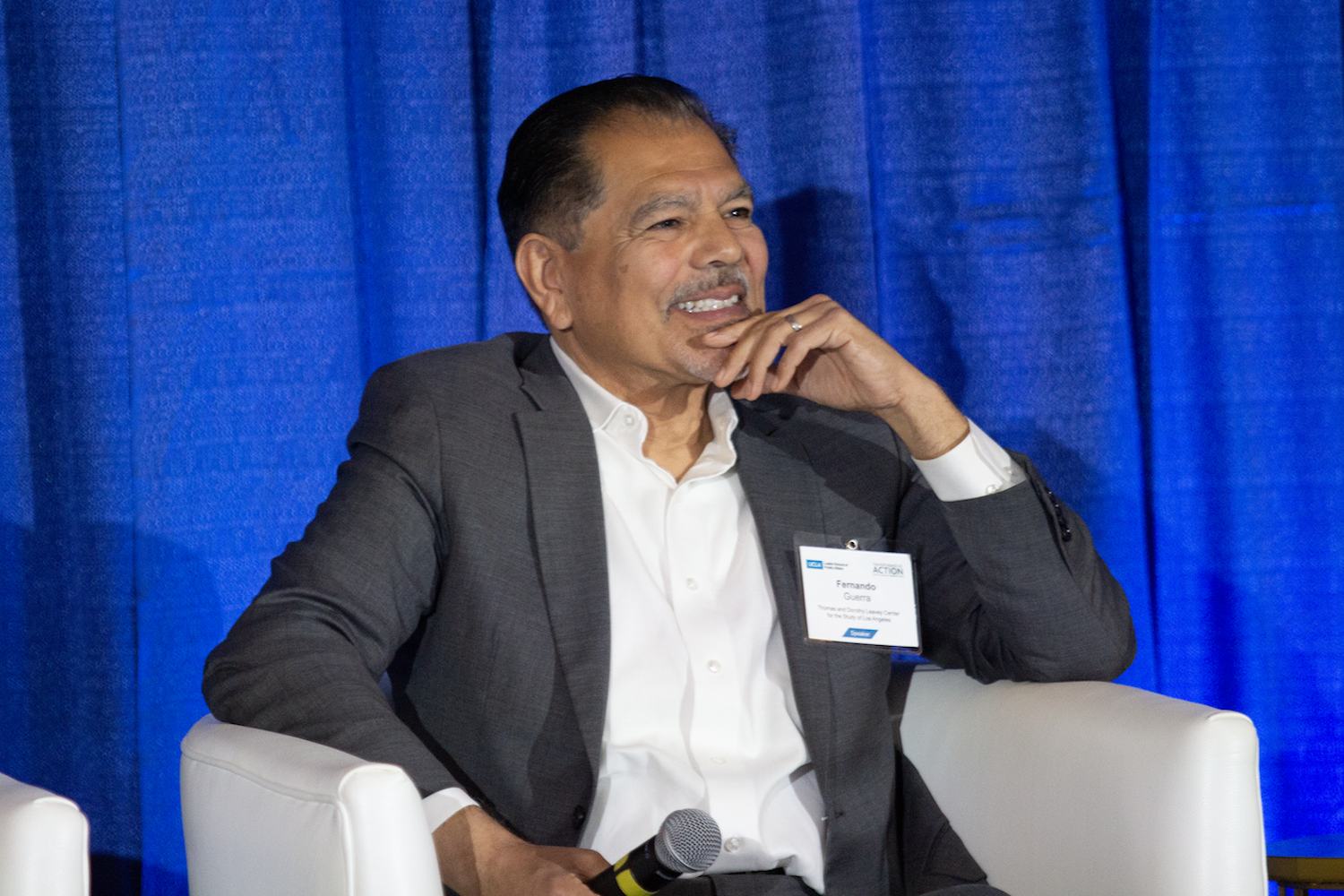
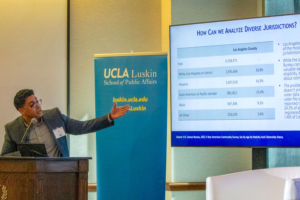
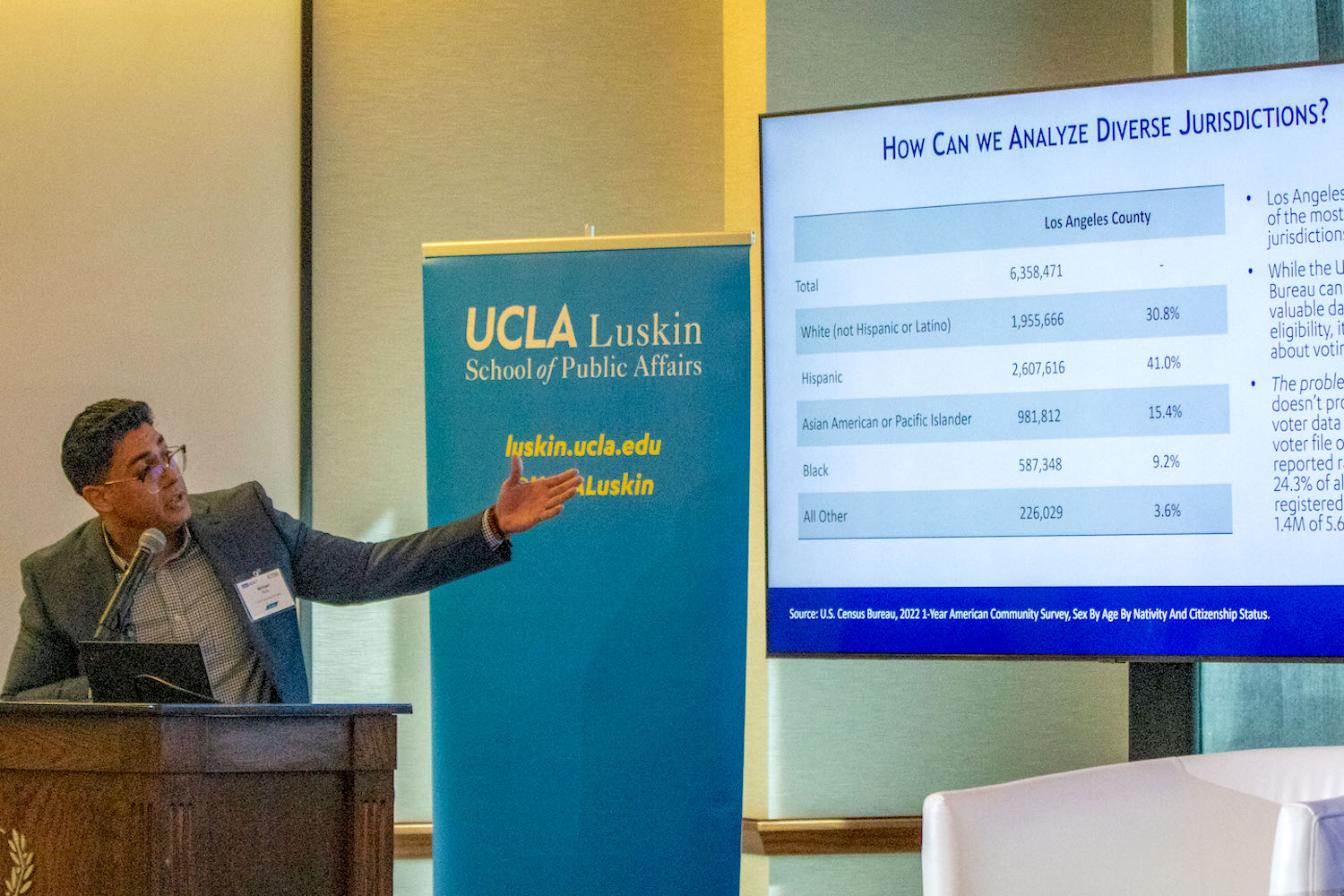
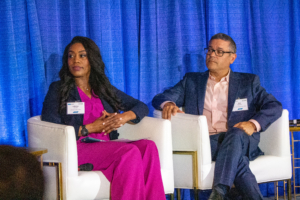
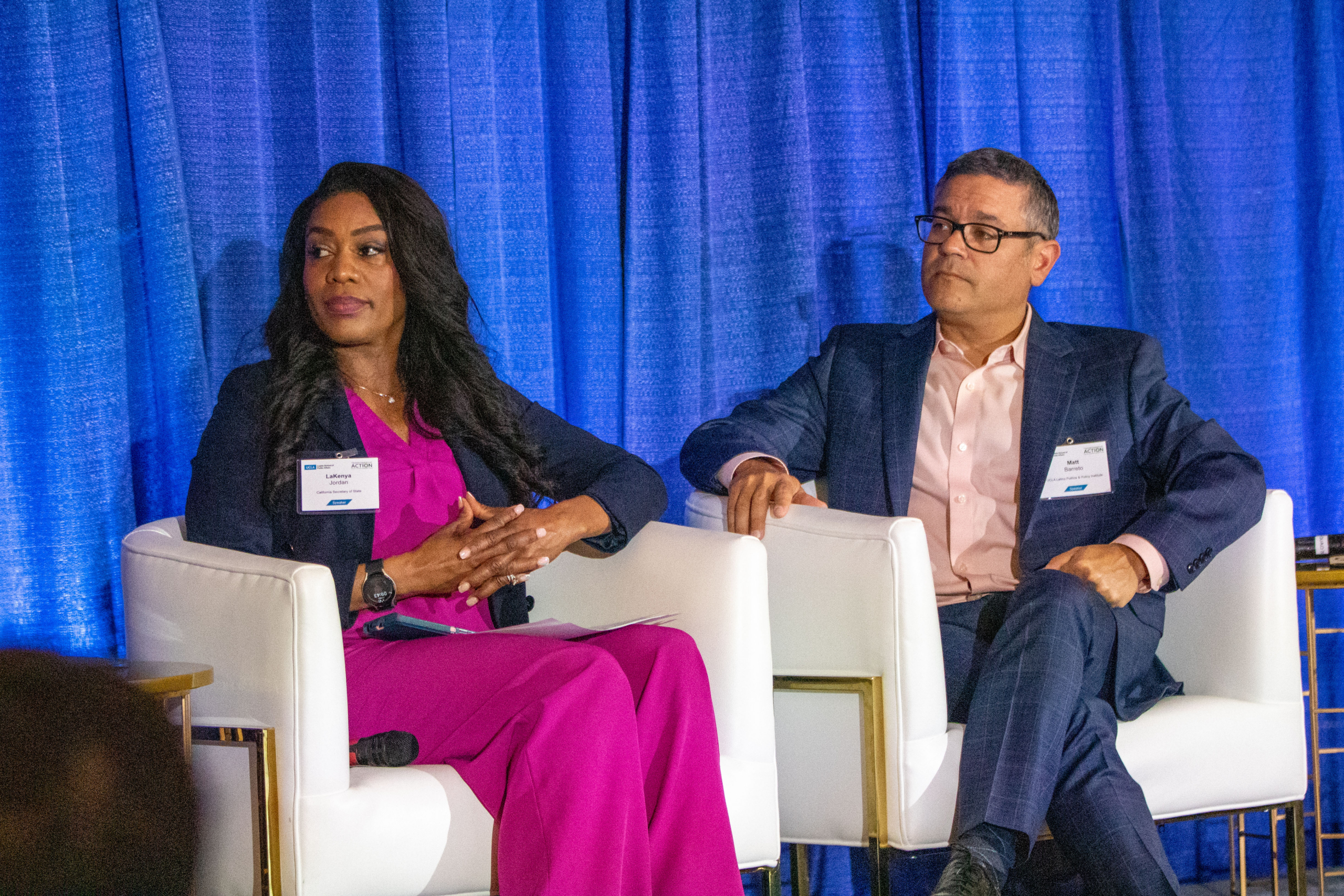
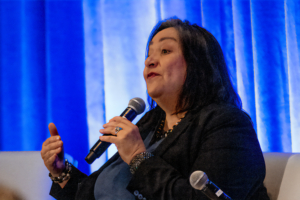
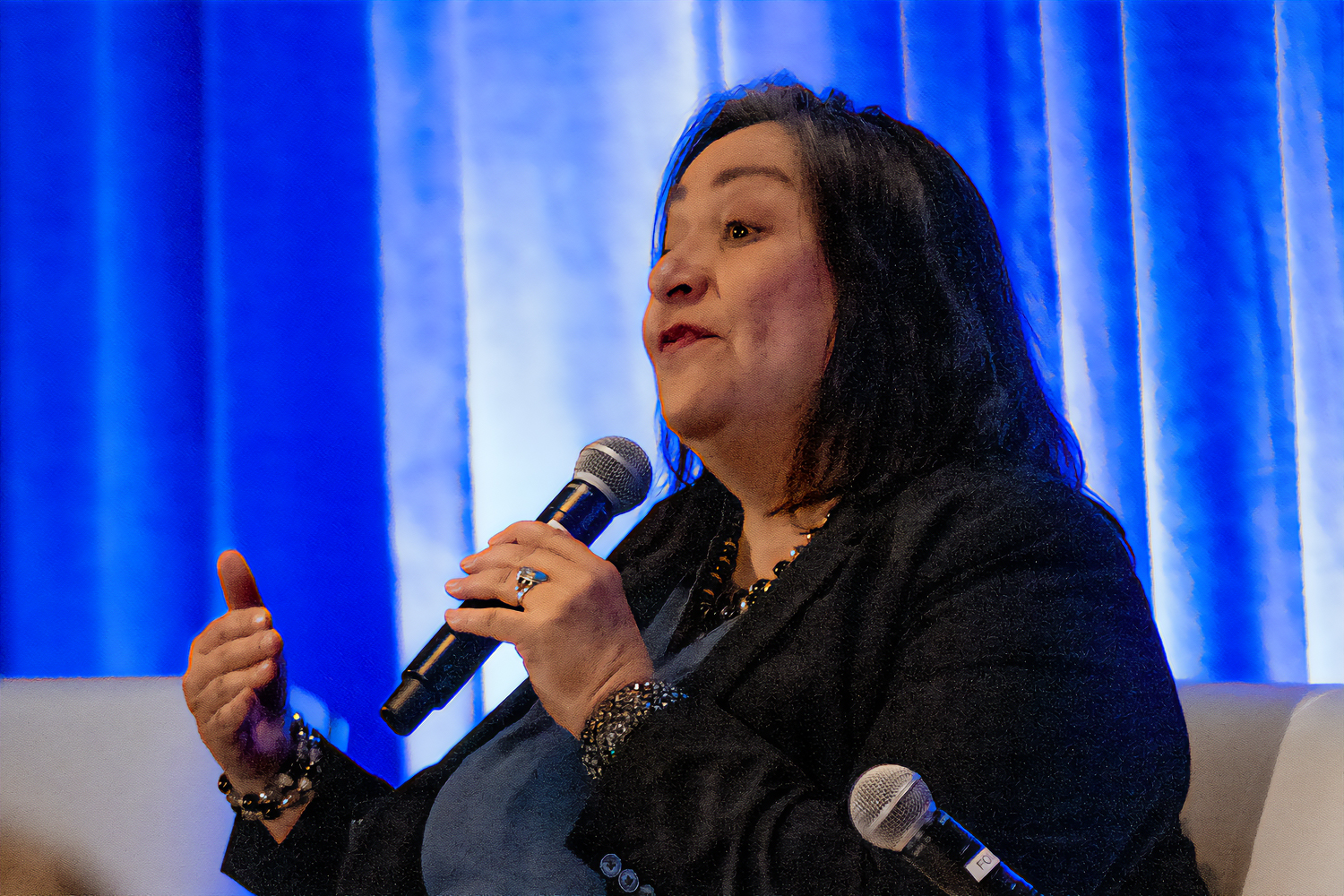

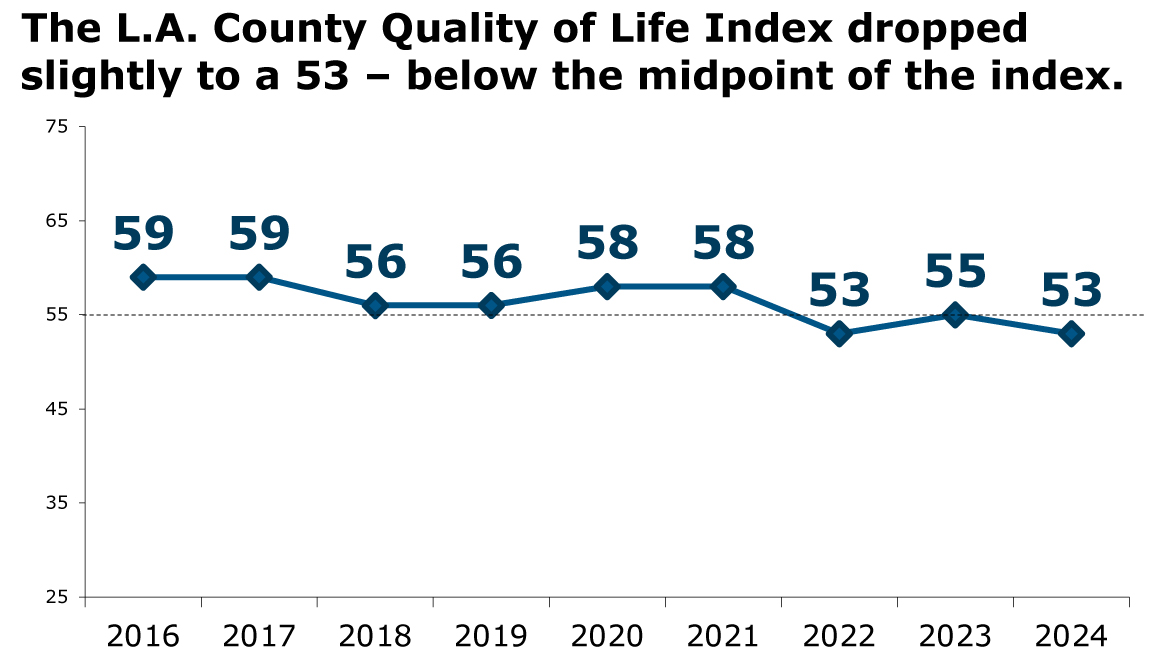
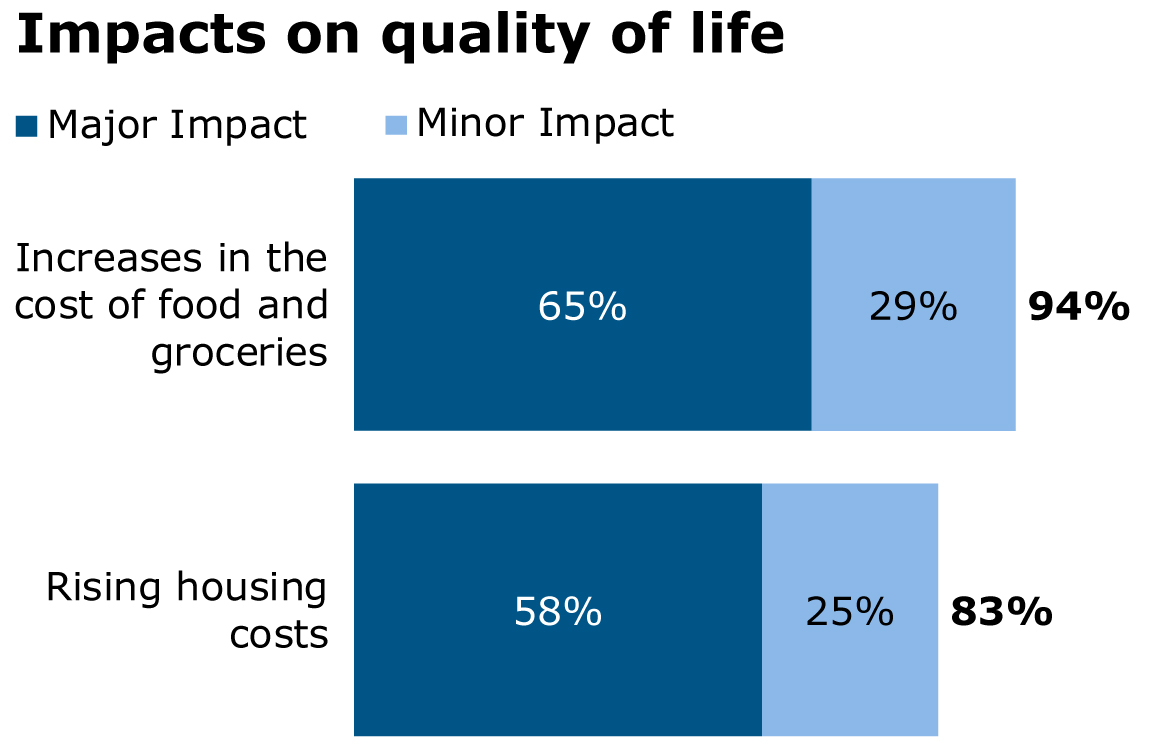
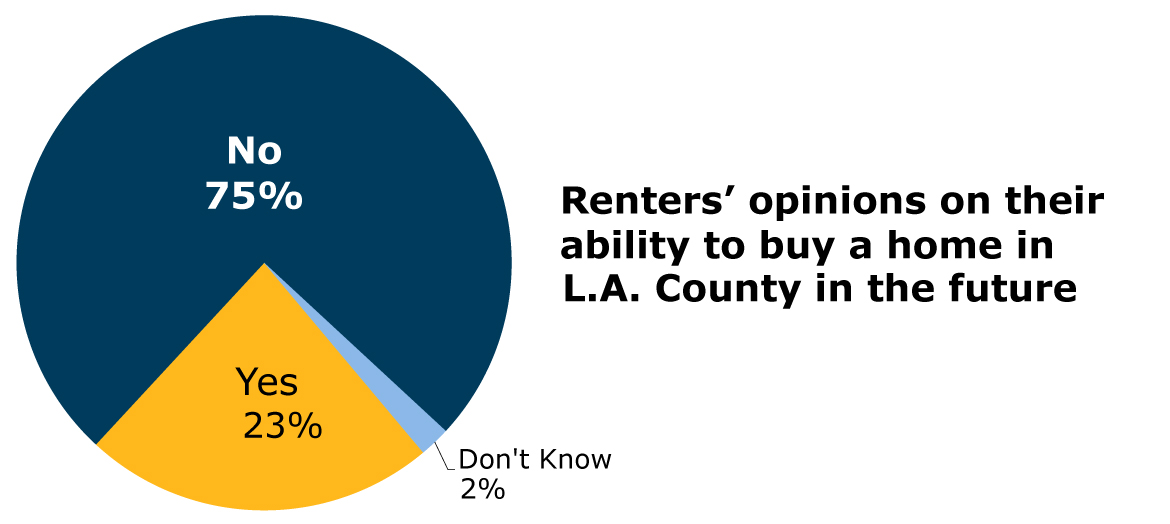
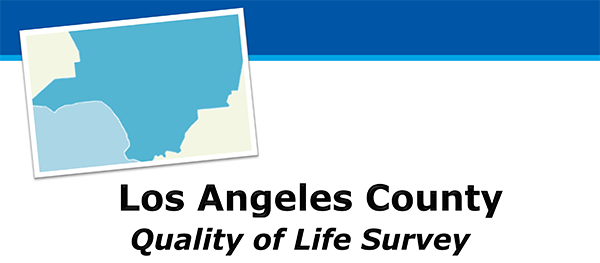
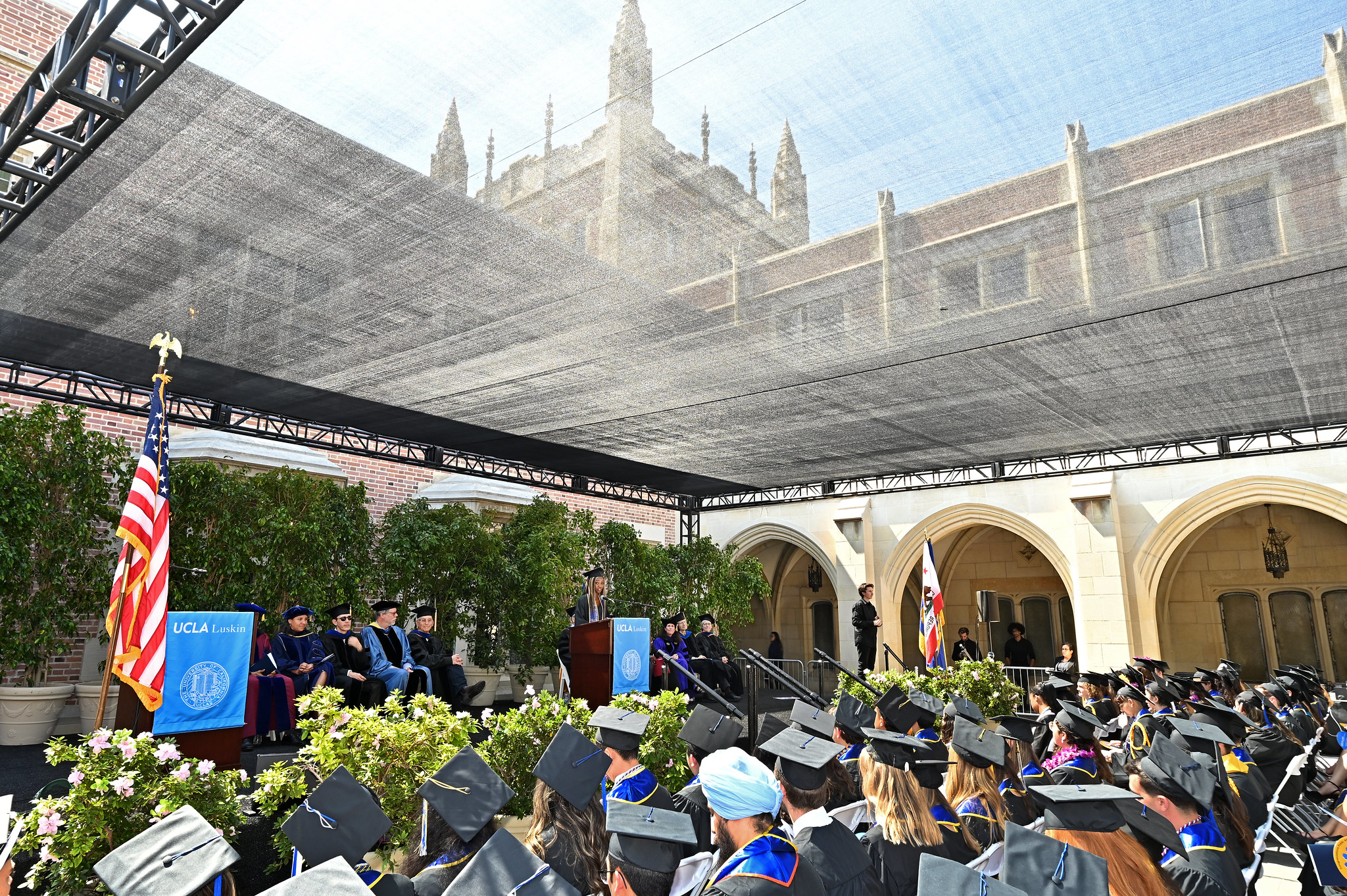
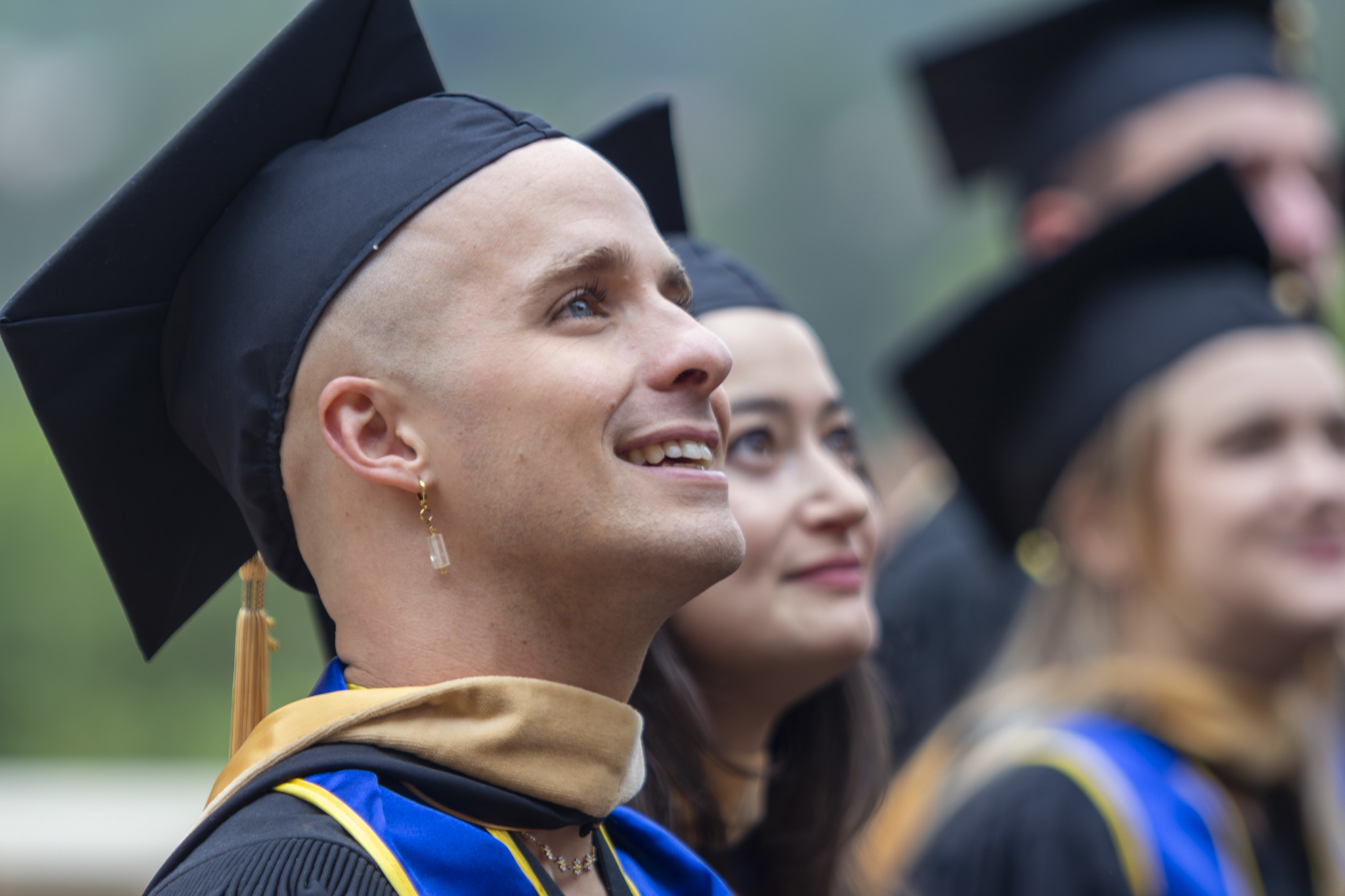
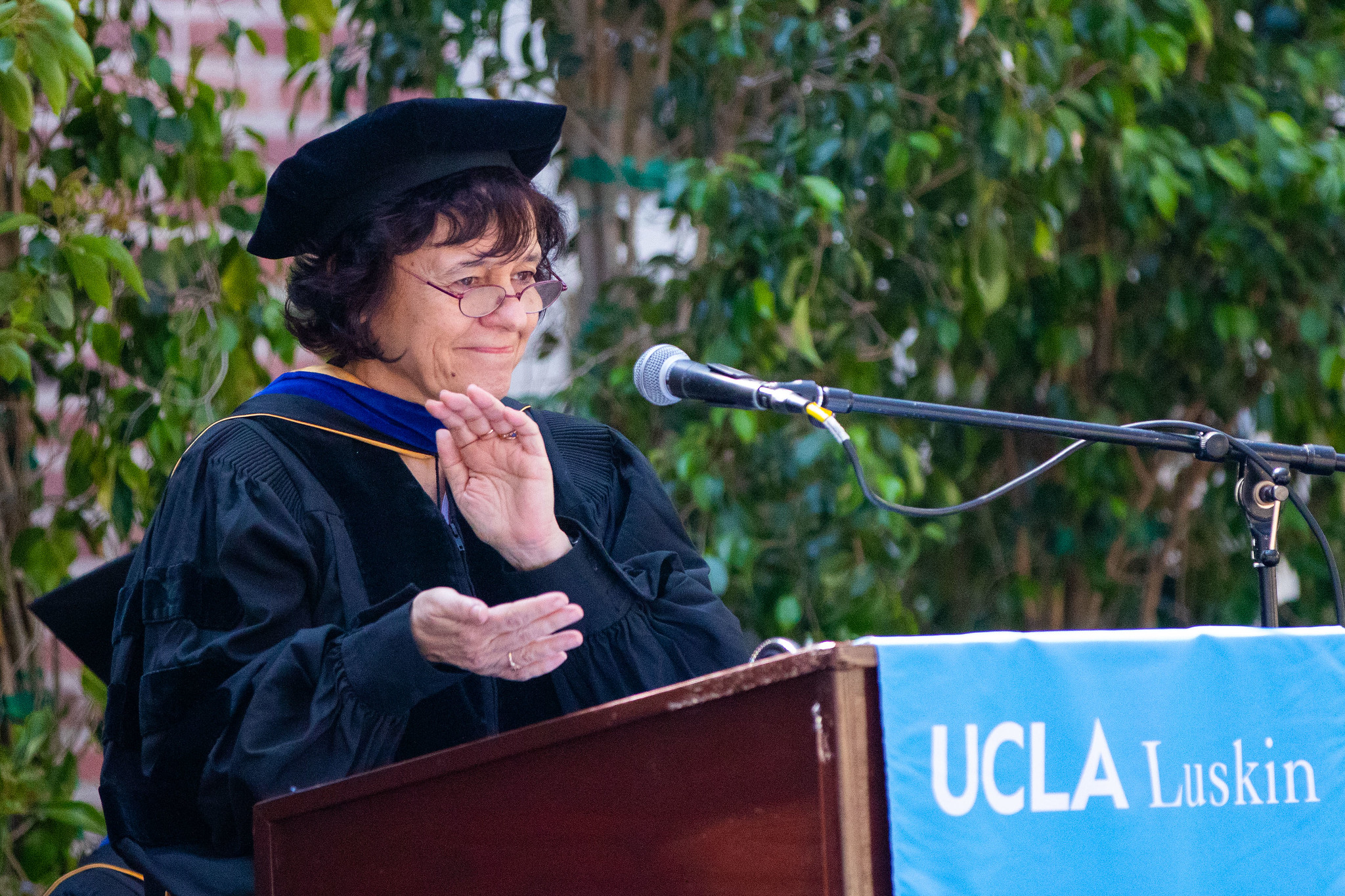
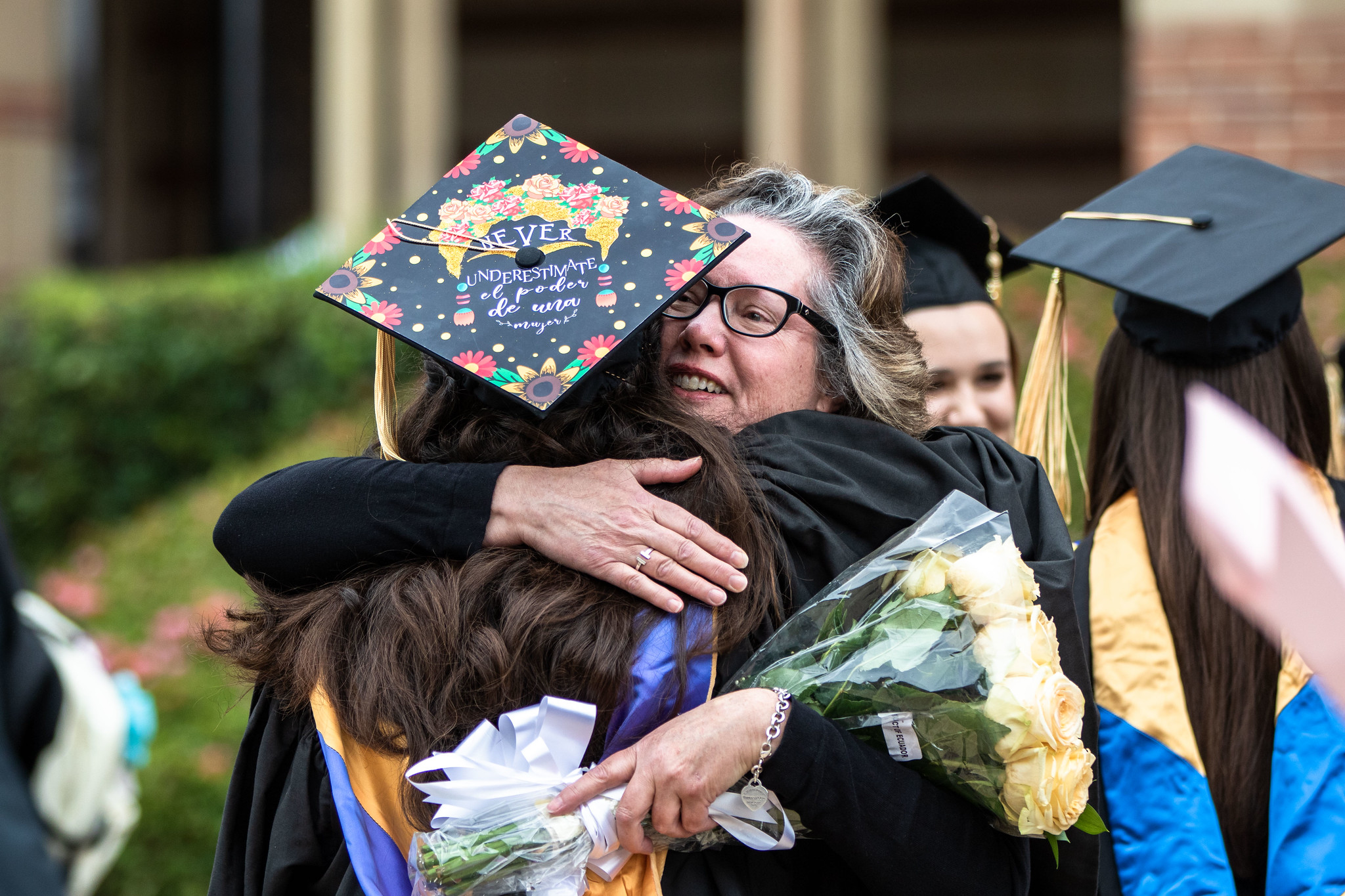
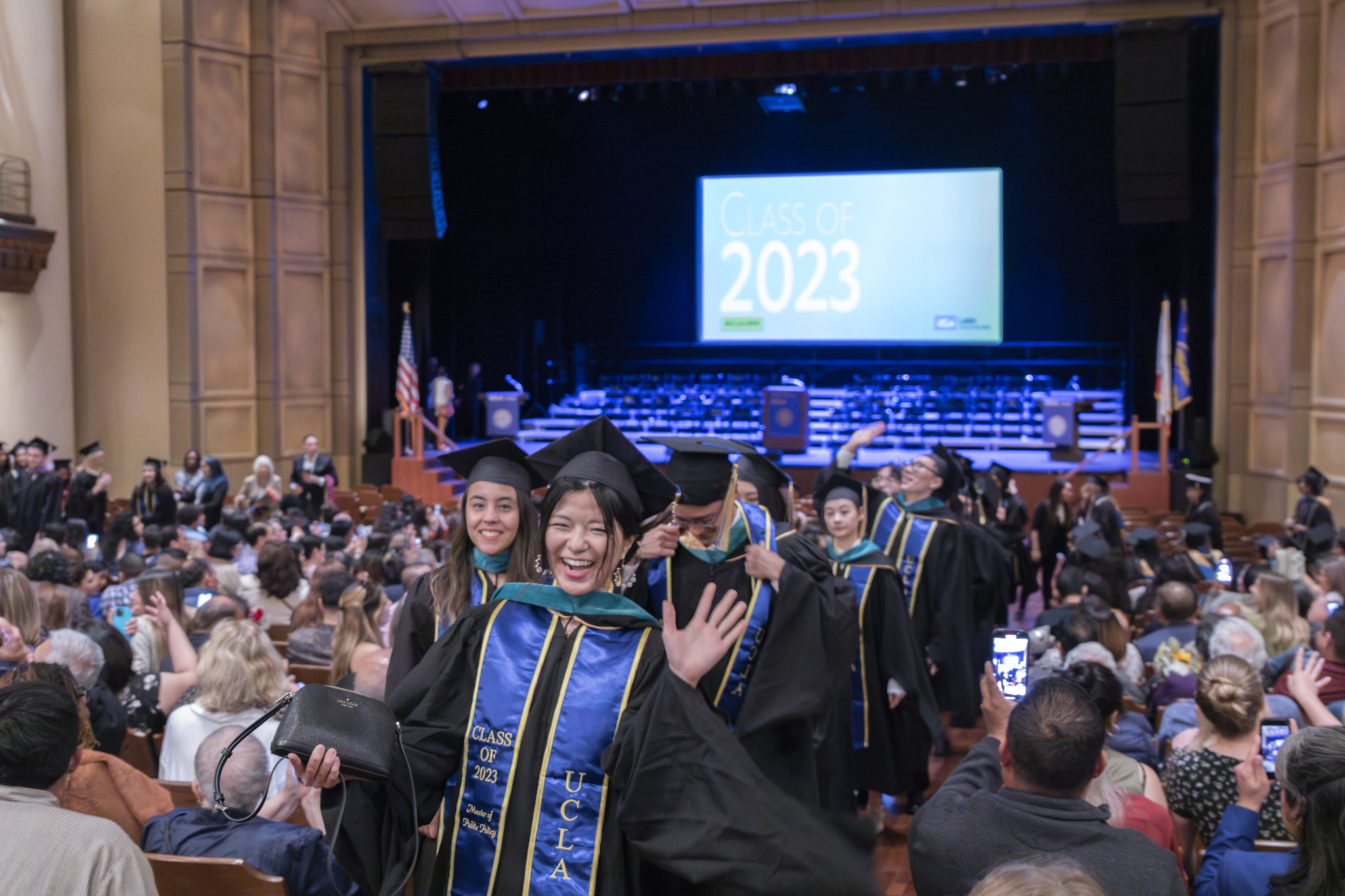
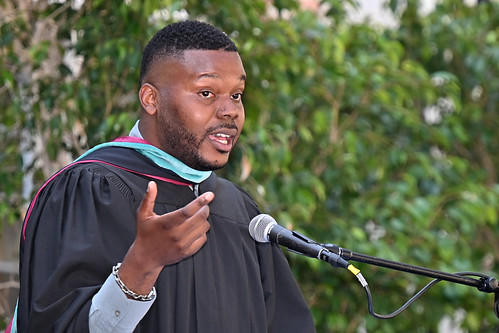

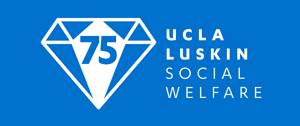 As UCLA Luskin Social Welfare celebrates the 75th anniversary of its founding, Torres-Gil will retire after more than three decades helping to advance the School’s educational mission as a professor of social welfare and public policy. He has served as chair of Social Welfare, associate dean and acting dean, as well as founding director of UCLA’s
As UCLA Luskin Social Welfare celebrates the 75th anniversary of its founding, Torres-Gil will retire after more than three decades helping to advance the School’s educational mission as a professor of social welfare and public policy. He has served as chair of Social Welfare, associate dean and acting dean, as well as founding director of UCLA’s 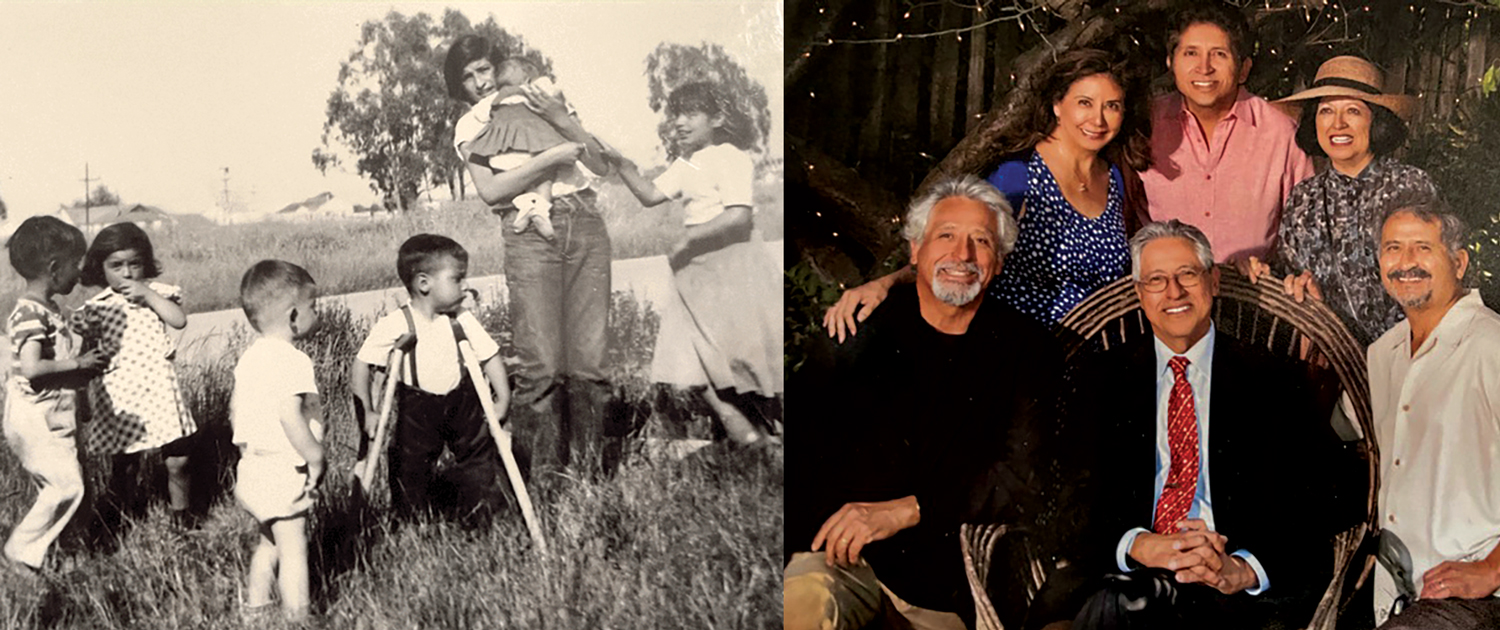
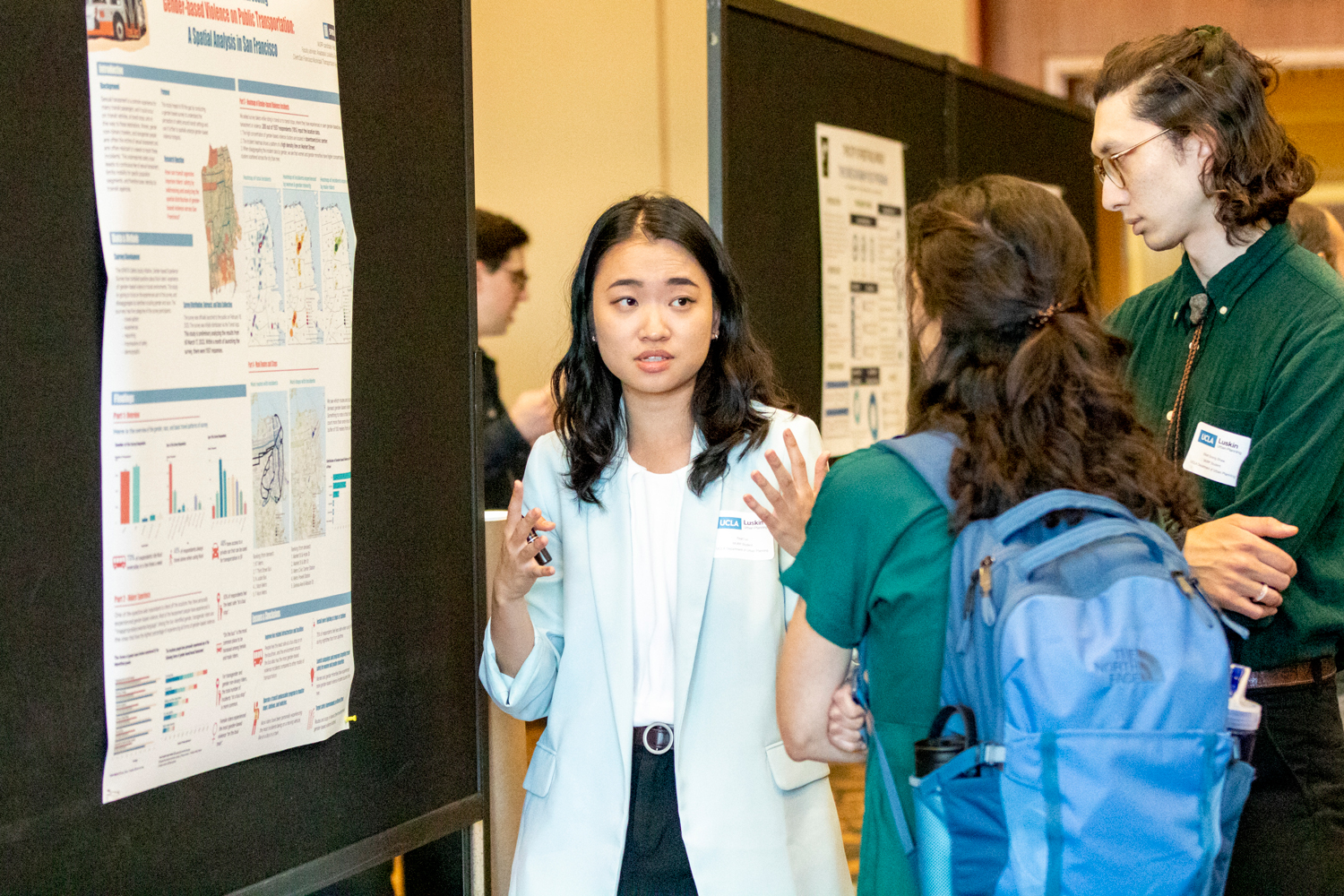
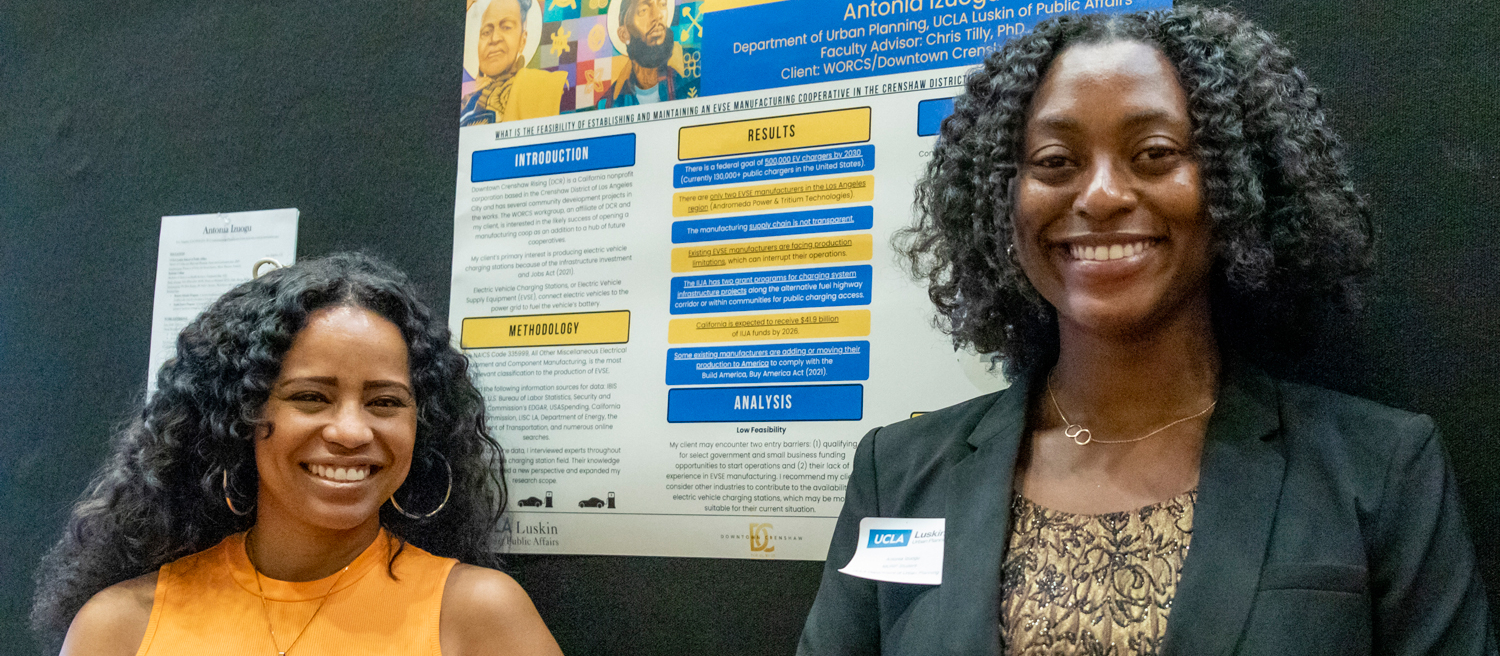
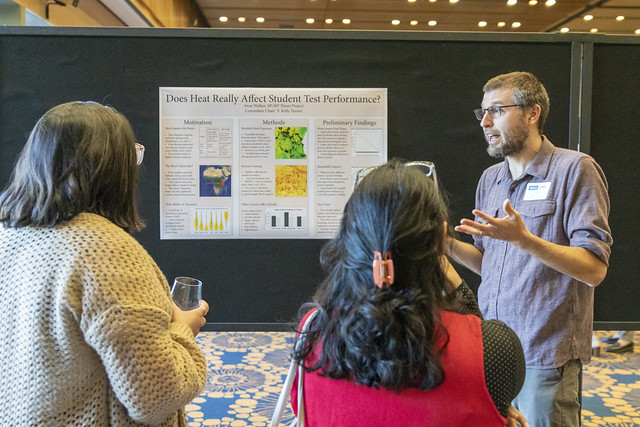
 “I think we have to reweave it, reimagine it and remake it to serve with equality, inclusion and humanity,” Mitchell said. “We have got to be as intentional about equity as previous generations have been intentional about exclusion.”
“I think we have to reweave it, reimagine it and remake it to serve with equality, inclusion and humanity,” Mitchell said. “We have got to be as intentional about equity as previous generations have been intentional about exclusion.”
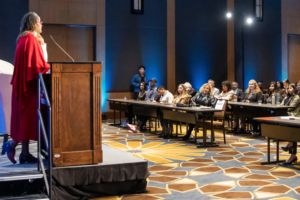
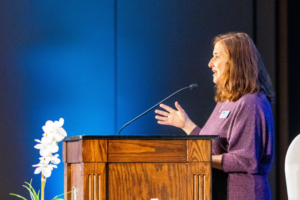
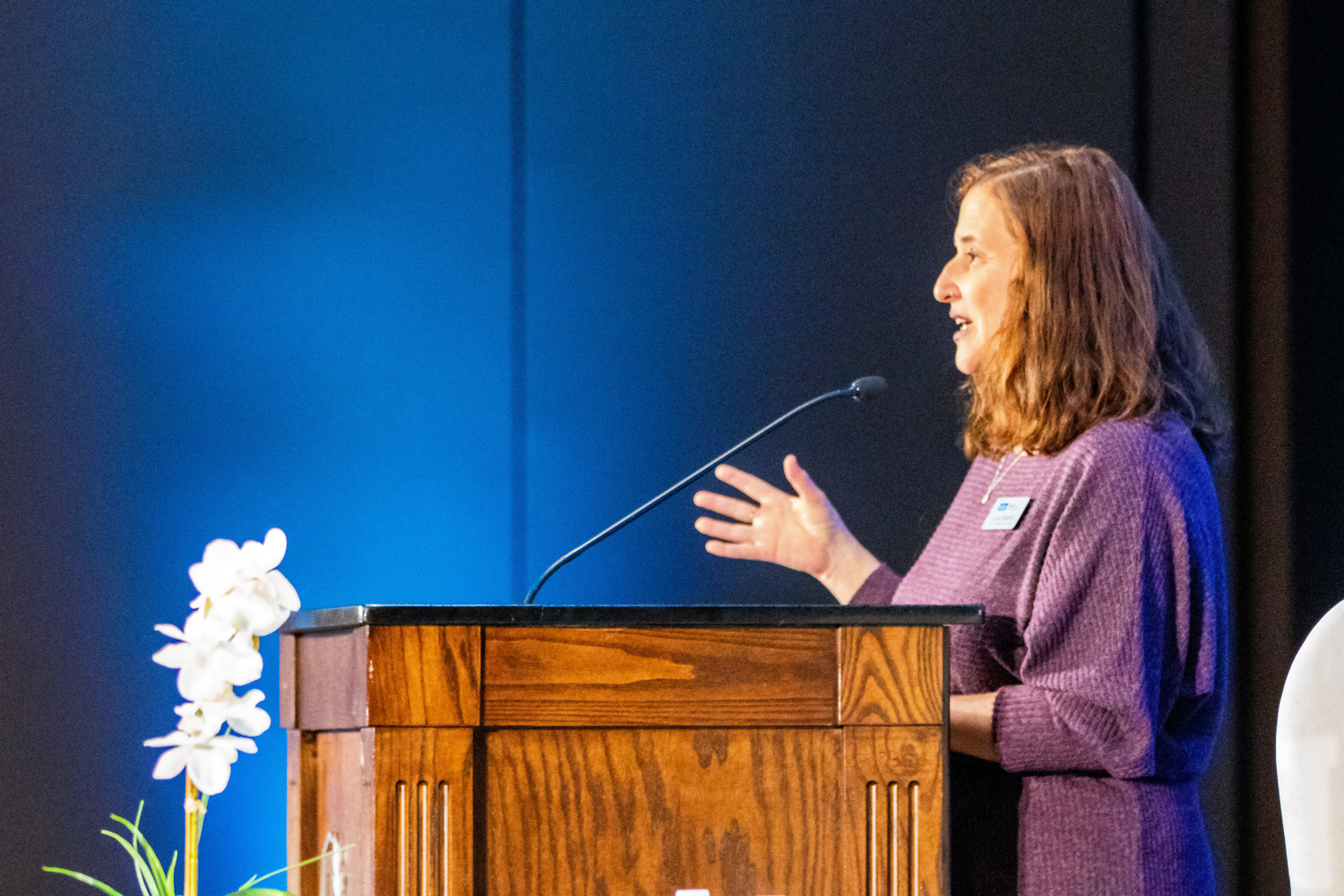
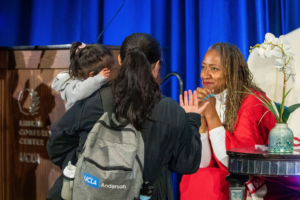
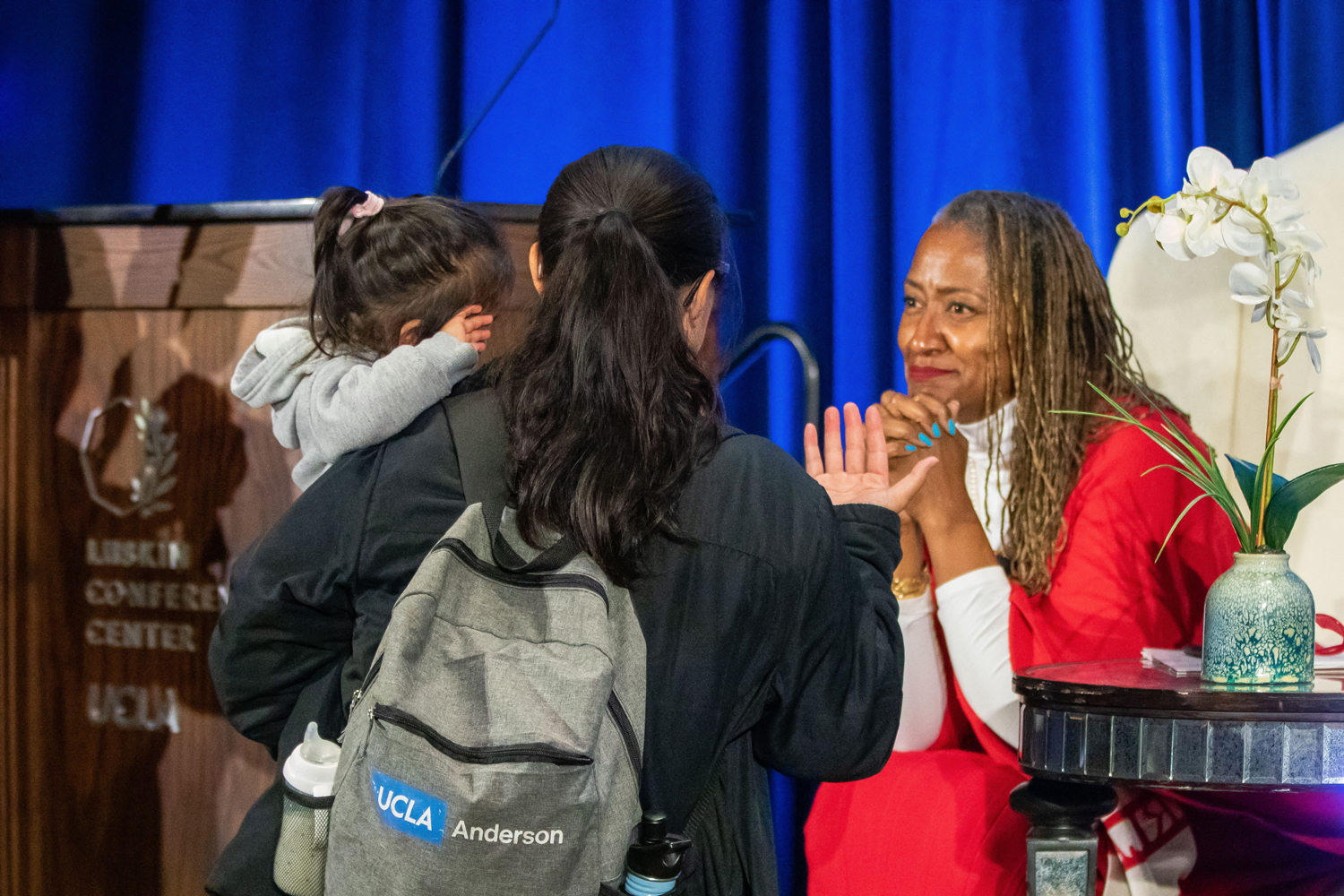
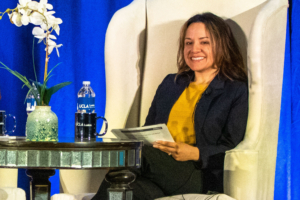
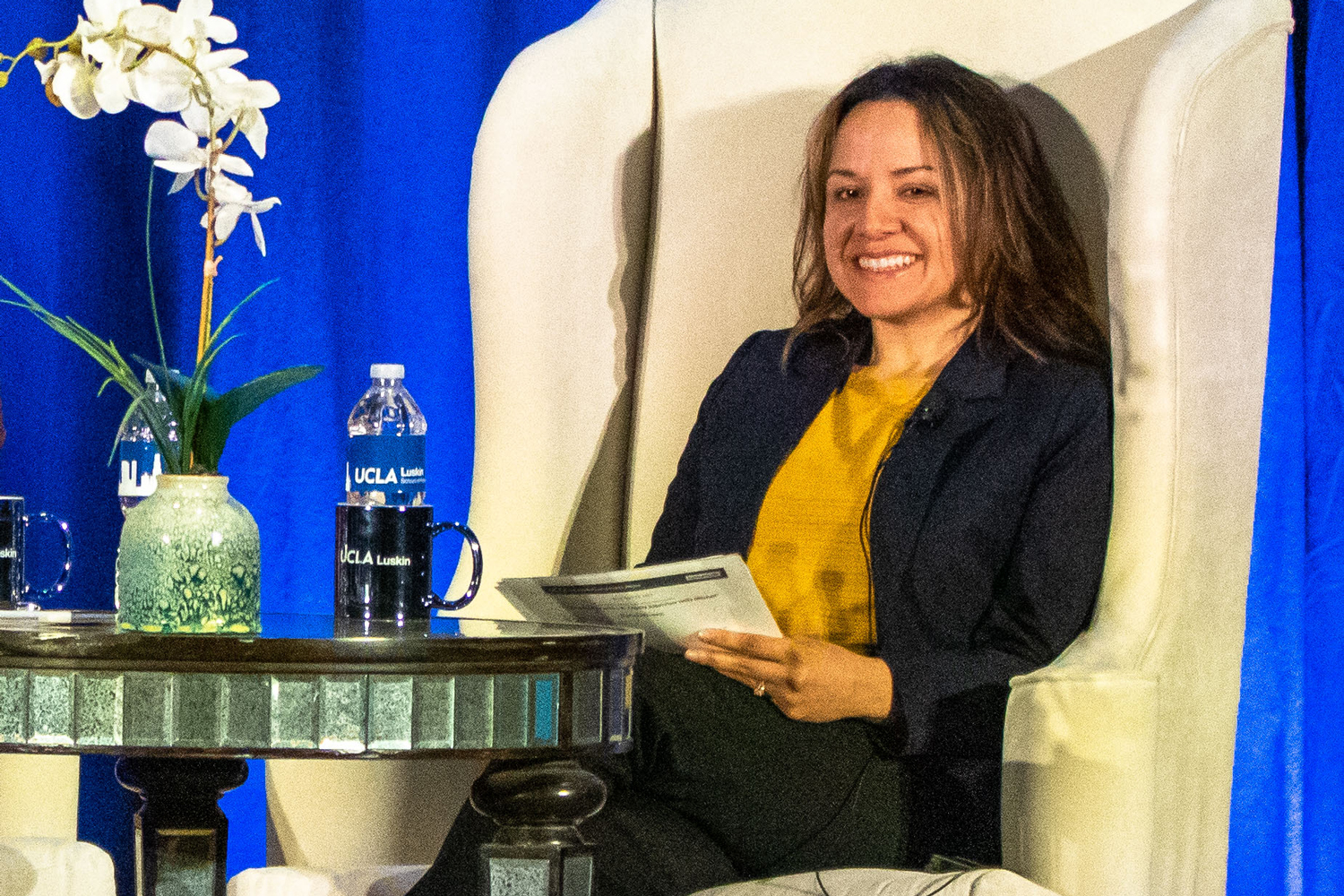

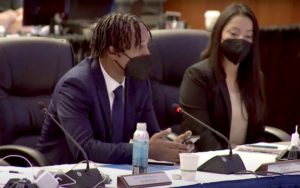
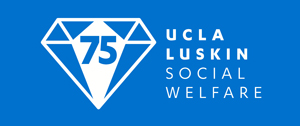 “It was January. I was writing a paper — my constant preoccupation,” Rothman said. “I hear a voice, ‘This is Dean Leonard Schneiderman, you know, school of social work at UCLA. Would you be willing to come out for an interview visit?’”
“It was January. I was writing a paper — my constant preoccupation,” Rothman said. “I hear a voice, ‘This is Dean Leonard Schneiderman, you know, school of social work at UCLA. Would you be willing to come out for an interview visit?’”